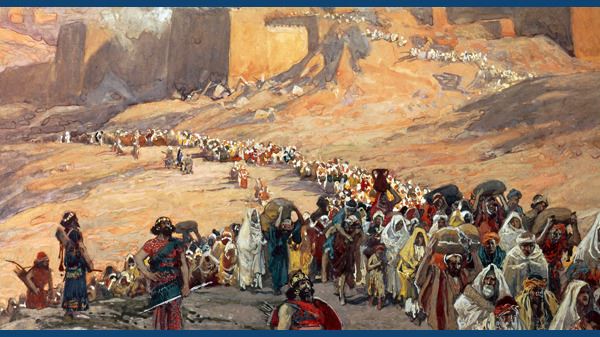 By Solomon Moon
By Solomon Moon
In Parsha Beshalach, the Amalekites fought the Israelites after G-d liberated them from Ancient Egypt. The Israelites were able to overcome Amalek when Moses’ hand was raised. When it fell, Amalek prevailed. So Aaron and Hur supported Moses’ hand to keep it raised.
This week we also celebrate Tu B’Shvat, the New Year for the trees. An interesting fun fact about trees is that they have their own “Aaron and Hur” through the mycorrhizal network that connects the trees to each other underground. In the wake of climate change, the Gaza war, and antisemitism, it is clear that Amalek is yet to be truly defeated. But, the question that I am left with after reading Beshalach is “Who or what is your personal Amalek?”
This question brought to mind the animated film, Inside Out. It’s about a young girl named Riley, who has moved to a new city and isn’t adjusting well. She even attempts to go back to her old home by herself. The Israelites wrestled with this same urge, as many questioned whether they were better off as slaves in Egypt than to die free in the wilderness.
Grief is often associated with the death of a loved one. However, it can also come as the result of the loss of a relationship, loss of a job, change in health status, or any significant change in life, such as moving away from a place once called home. Riley and the Israelites were experiencing grief due to this new change in their lives.
Thanks to Joy, Riley’s inner happiness regulator, Riley tried to deal with her grief initially by conjuring good memories or doing the things she used to find satisfying. In a place far from where she called home, these once happy moments transformed into sadness. Joy tried to keep Sadness from corrupting Riley’s happy memories. Simcha is a mitzvah so, Rebbe Nachman may agree that this is the appropriate response to Riley’s situation. However, what Riley really needed was to express her feelings with the comforting support of her family, instead of trying to run away from the pain.
Grief is a painfully arduous, transformative process. Like any major change in life, grief can also be accompanied by its friends: anger, depression, and denial. Processing grief is not easy and everyone grieves differently. But how you cope is similar to how the Israelites prevailed against Amalek (or, how the trees remain resilient through climate change). That is to say, sometimes no matter how valiantly we fight against our personal Amalek, our inner-Moses needs Aaron and Hur to help raise his hand in order for us to prevail.
As we turn grief inside out, we choose to grow into the unfamiliarity of life. This is a battle that, unlike with the Egyptians, G-d cannot fight for us. Amalek blocks the path to Sinai—our destiny, our relationship with the Divine. Amalek stands in the way of our true, higher selves. The battle with Amalek is our choice to fight for G-d, for freedom, for our peaceful and loving future together. Yet sometimes even when you do all the right things, Amalek seems to be prevailing.
Riley’s decision to return to the familiar life she had was not just out of grief and frustration. She was also terribly afraid, and running away from this scary, unfamiliar world her parents forced upon her. Joy then realized Riley needed Sadness to help her process these uncomfortable feelings. Together they created a new memory orb that was yellow and blue, filled with joy and sadness.
It’s easy to go back to the familiar or the way things were. But in order to continue growing, we must face the unfamiliar. Grief comes to aid us in that transition by revealing what has been lost and where you have room to nurture new life. The liberation from Egypt and journey through the wilderness was the Israelites’ opportunity to become and experience something greater than the slavery they endured. To find gratitude
in the grief is to see the angel in the marble, and carve until he is free.
There are many things that can keep your inner-Moses’ hand raised: community, support groups, creating new joyful memories and experiences. It can be expressing gratitude, doing a mitzvah, or going for a hike to appreciate the miracle of nature. Whatever it is, remember what you’re fighting for. Remember what our ancestors fought for. Remember what G-d fought for. Like the trees, may you find strength in your roots to weather life’s challenges and the courage to grow through difficult storms.